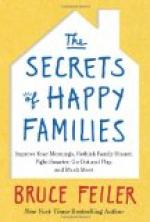“I guess he’ll do, all right,” spoke Coleman at his elbow. “I’ve seen horses pitch, and I will say that he’s got some specialties that are worth exhibiting.” Then, as a polite way of letting Andy down easy, he added, “I don’t wonder you couldn’t connect.”
“Connect—hell!” It was Andy’s first realization of what his failure meant to the others. He left off wondering about the roan, and faced the fact that he had been thrown, fair and square, and that before an audience of twenty-five pairs of eyes which had seen rough riding before, and which had expected of him something better than they were accustomed to seeing.
“I reckon Billy Roberts will have to work on that cayuse a while,” fleered a Diamond G man, coming over to them. “He’ll gentle him down so that anybody—even Green, can ride him!”
Andy faced him hotly, opened his mouth for sharp reply, and closed it. He had been “piled.” Nothing that he could say might alter that fact, nor explanations lighten the disgrace. He turned and went out the gate, carrying his saddle and bridle with him.
“Aw—and you was goin’ t’ ride in that contest!” wailed Happy Jack recriminatingly. “And I’ve got forty dollars up on yuh!”
“Shut up!” snapped Pink in his ear, heart-broken but loyal to the last. “Yuh going to blat around and let them Diamond Gs give yuh the laugh? Hunt up something you can use for a backbone till they get out uh camp, for Heaven’s sake! Andy’s our man. So help me, Josephine, if anybody goes rubbing it in where I can hear, he’ll get his face punched!”
“Say, I guess we ain’t let down on our faces, or anything!” sighed Cal Emmett, coming up to them. “I thought Andy could ride! Gee whiz, but it was fierce! Why, Happy could make a better ride than that!”
“By golly, I want t’ have a talk with that there broncho-tamer,” Slim growled behind them. “I got money on him. Is he goin t’ ride for that purse? ’Cause if he is, I ain’t going a foot.”
These and other remarks of a like nature made up the clamor that surged in the ears of Andy as he went, disgraced and alone, up to the deserted bunk-house where he need not hear what they were saying. He knew, deep in his heart, that he could ride that horse. He had been thrown because of his own unpardonable carelessness—a carelessness which he could not well explain to the others. He himself had given the roan an evil reputation; a reputation that, so far as he knew, was libel pure and simple. To explain now that he was thrown simply because he never dreamed the horse would pitch, and so was taken unaware, would simply be to insult their intelligence. He was not supposed, after mounting a horse like that, to be taken unaware. He might, of course, say that he had lied all along—but he had no intention of making any confession like that. Even if he did, they would not believe him. Altogether, it was a very unhappy young man who slammed his spurs into a far corner and kicked viciously a box he had stumbled over in the dusk.




